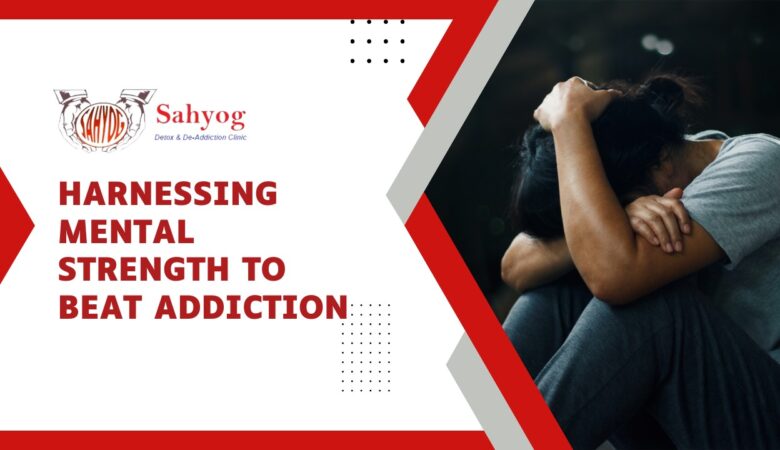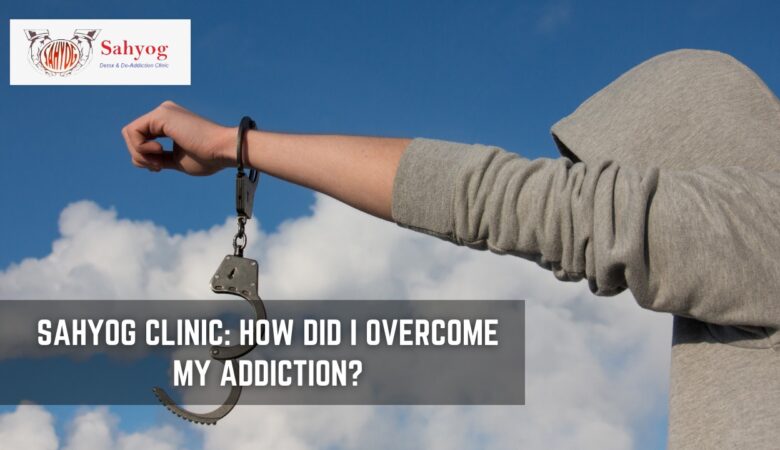Harnessing Mental Strength to Beat Addiction
Introduction to addiction and its effects on mental health Welcome to a journey of resilience and strength – where the power of the mind meets the challenge of addiction. In a world where mental health is paramount, understanding how to harness your inner fortitude can be the key to overcoming even the toughest battles. Join us as we delve into strategies for developing unwavering mental toughness and building a robust support system on the path to recovery. Let’s explore together how you can conquer addiction by tapping into your own reservoir of mental strength. Understanding the power of the mind in overcoming addiction Addiction can feel like a powerful force, pulling you in even when you know it’s harmful. But what if I told you that the key to overcoming addiction lies within your own mind? Our minds are incredibly resilient and adaptable, capable of rewiring themselves to break free from destructive patterns. By understanding the power of our thoughts and beliefs, we can start to shift our mindset towards recovery. It’s not about sheer willpower alone; it’s about harnessing the strength of our minds to make positive changes. Visualizing a life without addiction, setting clear intentions, and staying focused on your goals can help rewire your brain towards healthier habits. It’s important to remember that breaking free from addiction is a journey that requires patience and self-compassion. The power of your mind is immense – use it wisely to pave the way for a brighter, sober future ahead. Techniques for developing mental strength Developing mental strength is crucial in overcoming addiction. One effective technique is practicing mindfulness, which involves being present in the moment without judgment. This can help manage cravings and reduce impulsivity. Another technique is cognitive-behavioral therapy (CBT), which helps identify and challenge negative thought patterns that contribute to addictive behaviors. Setting small, achievable goals can boost confidence and motivation along the recovery journey. Engaging in physical exercise releases endorphins, improving mood and reducing stress levels. Journaling thoughts and emotions can provide insights into triggers and coping strategies. Learning relaxation techniques like deep breathing or meditation can calm the mind during challenging moments. Surrounding oneself with positive influences such as supportive friends or mentors can offer encouragement and accountability. By incorporating these techniques into daily routines, individuals can strengthen their mental resilience on the path to recovery. Building a support network for recovery Recovery from addiction is a challenging journey that often requires more than just individual effort. Building a strong support network can make all the difference in maintaining sobriety. Surrounding yourself with people who understand and encourage your recovery goals can provide invaluable emotional support during difficult times. Family members, friends, support groups, or therapists can offer different perspectives and guidance that help you stay on track. Sharing your struggles and achievements within this network creates a sense of accountability and solidarity that motivates you to keep pushing forward. Connecting with others who have gone through similar experiences can be particularly powerful as they offer empathy without judgment. Online forums, group therapy sessions, or community meetings are great places to find like-minded individuals who share your journey towards recovery. Remember, it’s okay to lean on others for strength when needed – we’re all human and need support at times. Cultivating a diverse support system ensures you have resources available whenever challenges arise on your path to healing. Challenging negative thoughts and behaviors Our minds have a way of convincing us that our negative thoughts and behaviors are valid. But what if we challenge those beliefs? What if we question the narratives that hold us back from breaking free from addiction? It’s not easy to confront these ingrained patterns, but it’s essential for growth. Start by acknowledging when those negative thoughts creep in – awareness is the first step to change. Next, replace those harmful thoughts with positive affirmations. Remind yourself of your strength and resilience in moments of doubt. Practice self-compassion; be kind to yourself as you navigate this challenging journey. Remember, progress is progress no matter how small. Surround yourself with people who uplift and support your transformation. Seek out individuals who believe in your ability to overcome obstacles. Embrace the discomfort that comes with challenging old habits – it signifies growth and evolution towards a healthier mindset. The role of therapy and medication in treating addiction Therapy and medication play vital roles in treating addiction by addressing both the psychological and physiological aspects of the condition. Therapy provides a safe space for individuals to explore underlying issues contributing to their addiction. Through counseling sessions, patients can develop coping strategies and learn effective ways to manage cravings. On the other hand, medication can help alleviate withdrawal symptoms and reduce the intensity of cravings, making it easier for individuals to focus on their recovery journey. When used in conjunction with therapy, medications like Naltrexone or Methadone can support long-term sobriety by balancing brain chemistry. It’s important to note that treatment plans should be personalized to meet individual needs. What works for one person may not work for another. By combining therapy and medication under professional guidance, those struggling with addiction have a higher chance of achieving lasting recovery success. Building Mental Toughness through Therapy and Support Groups Building mental toughness through therapy and support groups is a crucial aspect of overcoming addiction. Therapy provides a safe space to explore underlying issues and learn coping mechanisms. It helps in understanding triggers that lead to substance abuse, empowering individuals to make healthier choices. Support groups offer a sense of community and understanding from people who have walked similar paths. Sharing experiences and receiving encouragement can strengthen resolve during challenging times. Being surrounded by individuals striving for recovery fosters motivation and accountability. Therapy sessions may involve cognitive-behavioral techniques to reframe negative thought patterns associated with addiction. Learning how to manage stress, emotions, and cravings equips individuals with the tools needed to navigate temptations effectively. Participating in support groups allows for the exchange of strategies that have worked


